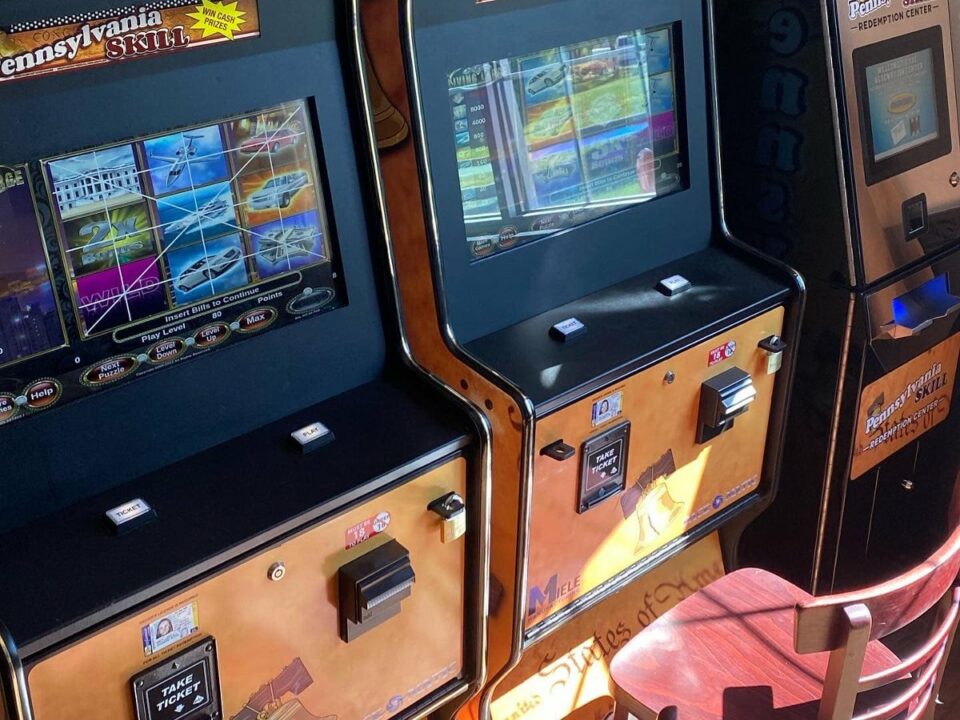Posted on: October 12, 2022, 01:02am.
Last updated on: October 12, 2022, 01:21 am.
Parx Casino is the richest gaming property in Pennsylvania. But the Bensalem venue believes it would be generating more revenue if it weren’t for unregulated skill gaming machines operating throughout the commonwealth.
“Pennsylvania Skill” machines are found in various businesses across the commonwealth. The richest casino in Pennsylvania, Parx Casino, contends in a lawsuit that the devices are illegal. (Image: Facebook)
Georgia-based Pace-O-Matic (POM) and its Pennsylvania subsidiary, Miele Amusements, are the leading manufacturer and distributor of the controversial gaming terminals. “Pennsylvania Skill,” as the games are branded, look and operate closely to traditional slot machines found inside Pennsylvania’s legal casinos.
Skill games have the same spinning reels and ringing sounds as slots, but they differ in that the player must identify a winning payline. A slot machine automatically pays out on a winning spin.
Parx Casino, owned and operated by Greenwood Gaming and Entertainment, filed the lawsuit against POM in the Philadelphia Court of Common Pleas. The casino alleges that POM’s products are nothing more than cleverly designed slot machines, and as such, the games are operating outside of the state’s existing regulatory framework on gambling.
Lanham Act Allegations
Pennsylvania courts continue to mull a lawsuit regarding the legality of POM’s machines. POM argues that since there’s an element of skill involved, the terminals don’t constitute gambling apparatuses, and therefore fall outside the scope of the state’s Gaming Act.
Parx attorneys contend that the machines are banned under state law because they are unregulated gambling devices. The casino also alleges unfair competition, tortious interference with a legal, regulated industry, and negligence per se.
Parx cited the Lanham Act — also known as the federal Trademark Act of 1946 — in its lawsuit. The Lanham Act is a federal statute of US law that bars activities that infringe on trademarks, trademark dilution, and false advertising.
The Pennsylvania Crimes Code makes it illegal to intentionally or knowingly make, assemble, set up, maintain, sell, lend, or lease ‘any slot machine’ except as permitted under the Gaming Act, the State Lottery Law, Bingo Law, or the Local Option Small Games of Chance Act,” attorneys representing Parx Casino alleged in the lawsuit.
The lawsuit contends that the Gaming Act defines slot machines to include traditional slot machines along with “skill slot machines” and “hybrid slot machines.”
The skill component of POM machines, Parx’s legal team maintains, doesn’t supersede the terminals’ element of chance in determining the outcome.
“Pennsylvania Skill-branded slot machines are illegal gambling devices, and they are represented to be games of skill when they are not,” the lawsuit continued. “Consideration is required to play, the machines employ random number generators, there is a reward for successful play, and the results of play are not predominantly determined by skill.”
The lawsuit concluded by alleging that skill games are “essentially the same” as licensed slot machines.
Costly Decision
POM maintains its terminals have been a lifeline for struggling small businesses amid the pandemic. Revenue from the games is split between the host establishment and the manufacturer and distributor.
They’re not illegal,” said Michael Barley, chief public affairs officer for POM, last month. “Every dollar that’s made, over 92% of it is staying in the commonwealth, staying in small business.”
The machines are not taxed nor regulated to assure players of fair play or a minimum payout, as are casino slots. The Pennsylvania Lottery believes skill games have hurt lottery sales by more than $650 million since 2017.
Parx’s lawsuit is seeking financial damages from POM.
“As a direct and proximate result of POM’s wrongful conduct, Parx Casino has suffered and will continue to suffer a great risk of financial losses, permanent irreparable harm, and other continuing harm,” the lawsuit ended.

